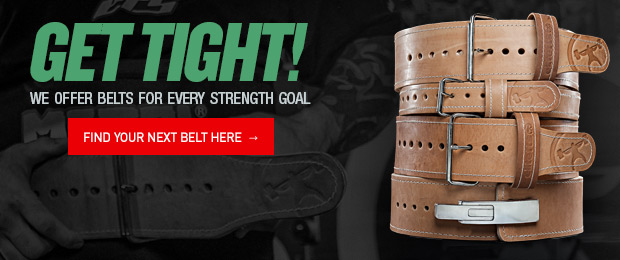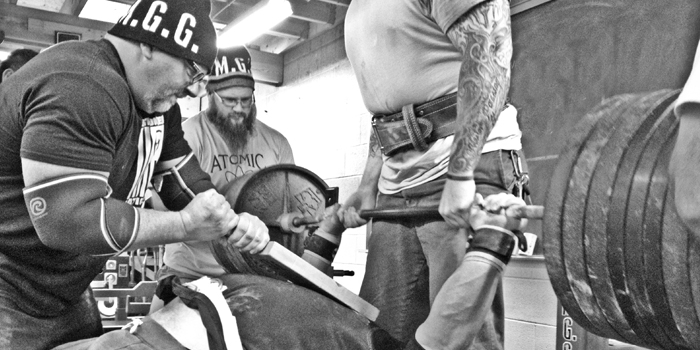
10. Your use of the word “legend” is reserved for an actual legend
If I had a dollar for every time the use of the word “legend” was tossed around, I would be writing from a vacation home off the beach in Hawaii somewhere. Having a large social media following does not a legend make.
Legendary status is not about a single accomplishment, but of a lifetime of work leading to that accomplishment. Accomplishments with far-reaching impact, where one’s legacy stands and withstands the ultimate test, the test of time. Weathering the storms of time is far different than being the flavor of the month.
RECENT: When Honesty is the Only Policy
We can think of a lot of truly legendary athletes, and that is not something that is to be measured in terms of followers or the size of the social media footprint. Save the word legend for those who embody the significance of the word and let the Insta-famous bask in their glory. Their glory of being really, really good at talking about and promoting themselves. Walter Payton said it quite well:
“When you're good at something, you'll tell everyone. When you're great at something, they'll tell you.”
Ed Coan is the perfect example of this. Unearthly numbers (901-pound pull at 220, for example), top numbers, records in several weight classes for multiple lifts and totals, and decades as the pinnacle of the sport. You want more? Add to it how Ed is constantly giving back to others. This is the proper use of the word: “In powerlifting, Ed Coan is a living legend.”
9. You have actually read several books about strength and power
Instagram clips and YouTube “how-to” videos are available and convenient, but sometimes the devil is in the details. Aspects of training are not always simple and can take several chapters of material to expose those details. Powerlifting for the serious powerlifter is not about bullet points; it’s not about clicks or views; nor is it about likes.
In powerlifting or any endeavor that has complexity to it, more often than not, it’s about taking the deep dive and reading and re-reading the content. You have come to realize that practical experience, hands-on training, and in-depth knowledge contained in the pages of books penned by authors and athletes who have not only been there but have successfully been there, equal a far better opportunity for your own success.
Leave the “Add 50 Pounds in an Instant by Watching This Video” to the amateur hour lifters. Continue on your path of combining the written along with the moving of iron throughout your powerlifting journey.
8. You train the whole deadlift
There are actually three parts to this lift: the pull off the floor, the hold at the top, and the controlled eccentric down portion of the lift. The non-serious powerlifters love to hear the sound of their 400 pounds hit the floor, whereas the serious deadlifters prefer to set their bar down (compete with 700- to 800-pounds of weight), as it is the eccentric of the lift that built their erectors to the point of being able to pull massive weight in the first place. The group of erector muscles (Iliocostalis, Longissimus, and Spinalis) protrude like thick steel cables in great deadlifters, and the eccentric is critical.
There is a negative correlation between the volume of the deadlift hitting the floor and the prowess of the puller. The louder the deadlift comes crashing down, the more of the eccentric that was utterly wasted. To put it another way, they just blew off an entire portion of the lift. One would never do just half of a bench press or squat only to dump the bar and not finish the lift.
RELATED: Improve Your 1RM Deadlift with These Variations
The serious powerlifters train for a total; the not-so-serious drop their deadlift to be noticed. You have seen this and you avoid it because you know the entire lift needs to be trained and you are also well aware that confidence requires no attention from others. Moving on...
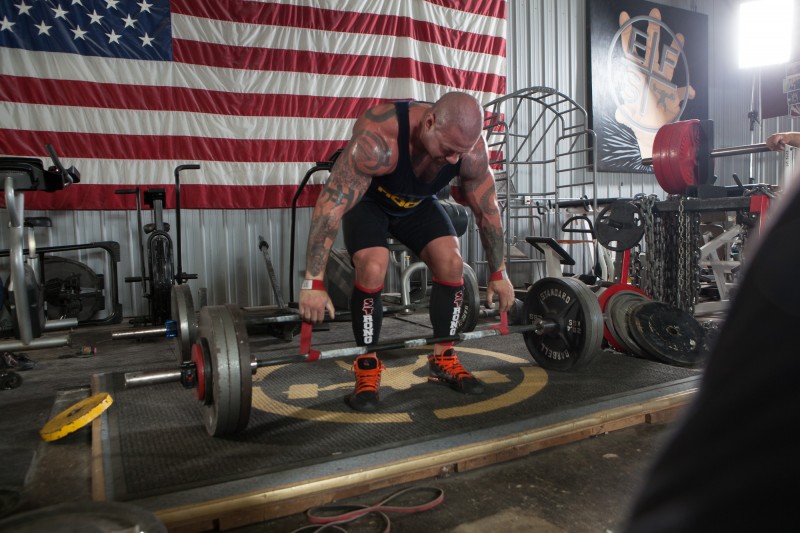
7. You couldn't care less if someone competes raw or with gear
You are focused on your training and the competition. The competition that, with each and every day, draws closer and closer. You can’t be bothered with the trite, the mundane, or the inane.
Your non-serious counterpart, on the other hand, is quite busy as well, but with different things. One being the keyboard thrust and parry of who are the “real” powerlifters, and who is right. They focus on the differences between raw versus geared lifters.
Let them continue wasting their time and energy on apples versus oranges, you continue on your vision, your mission, your training, your competition, and your next PR.
6. You can survive an entire training session without having to look at the phone
Of all the telltale signs of who is not in it to win it, this is pretty much the easiest to observe. They do a set, zone out for eight minutes with eyes frozen on the blue light, doing thumb reps over and over and over and over again. Time is precious in the gym, and the gym is your fortress of solitude. You know it, and you do what so many just can’t, and that is simply leaving your phone in your gym bag while you push your body, muscle, and mind to the brink for that fleeting and oh so precious time you have for that workout.
The science is irrefutable with regard to the phone and losing your fight and flight response in the gym. But for some, the phone is truly a greater priority. They justify and mightily say, “My program is on my phone” or “I log my training in my phone.”
But you know the truth and you know the science, so you log your training with pen and paper and keep your mind in the muscle and our phone in a bag.
Kai Greene talks in bodybuilding terms that if a bodybuilder doesn’t have discipline in the kitchen, there won’t be success on the stage. I submit that if a powerlifter can’t keep from the distractions of the online world during a training session, they are not a serious powerlifter. You see the phone-scrolling sheep in the gym, and so do the other lions training in the gym. You train, they scroll; you progress, they stagnate.
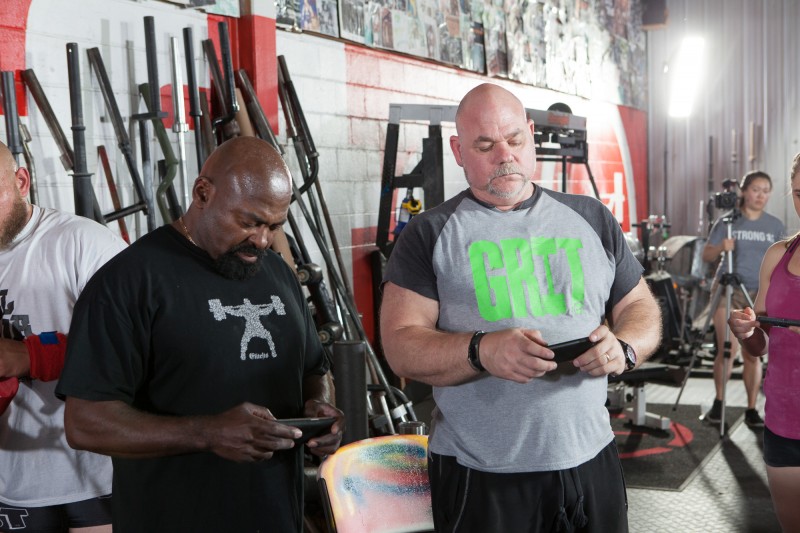
5. You can make your own program decisions
Prior to the Internet, lifters read up (see Item 9) on programs. They ran the program, they noted what worked and what did not, what needed to be kept, what needed to be tweaked, and what needed to be tossed out. They knew that intrinsically they have the ability to see what works for them and what doesn’t work for them.
Like those pre-Google and pre-online “program guru” lifters, you have come to realize that one size doesn’t fit all and that there’s no one perfect program because if there was, everybody would be getting huge numbers everybody would be on the program and everybody would be a legend... er, I mean, champion.
LISTEN: Table Talk Podcast Clip — "Figuring Shit Out" is Lost
Just because something is popular doesn’t mean it works and just because something is old doesn’t mean it is not effective. You know this, and therefore you continue to make well-educated decisions on your own. Let the others pay for that Top secret Russian template that will get them 700 pounds on their total in 30 days or your money back with free shipping, act now.
4. You have the ability to differentiate between someone who is hardcore and someone who is merely being a douchebag
Contrary to popular belief, being hardcore is not about yelling at people; it is not about talking in disparaging ways about other lifters; it is not about putting people down; nor is it being loud at the gym and throwing a temper tantrum.
Being hardcore is about self-discipline; it is about consistency, and it is about educating oneself and applying that acquired knowledge. Being hardcore is in the understanding of the history of the sport as to have a larger view and context of aspects that might impact your training and ultimately your total. Being hardcore is the ability to realize that there’s a time to push and risk potential injury but there’s also time to walk away and shut it down. It is the ability to have the self discipline to recovery, and having the awareness to want to be great but not just great for a minute but great for a long period of time.
Hardcore is the powerlifter who can go 110 mph but also knows when to go slow around the curves of the road that is this brutal sport of powerlifting. Training at 110 mph without using the other critical gears takes the pseudo-hardcore lifters flying right into the wall, game over. Here today, gone later that same day.
Continue to delineate from those who are hardcore and those who are merely a douchebag. Ask anyone who has been around the sport for a few decades, they will tell you that you will run into douchebags disguised as hardcore all your life. The quicker you can ID which they are, the less time you waste.
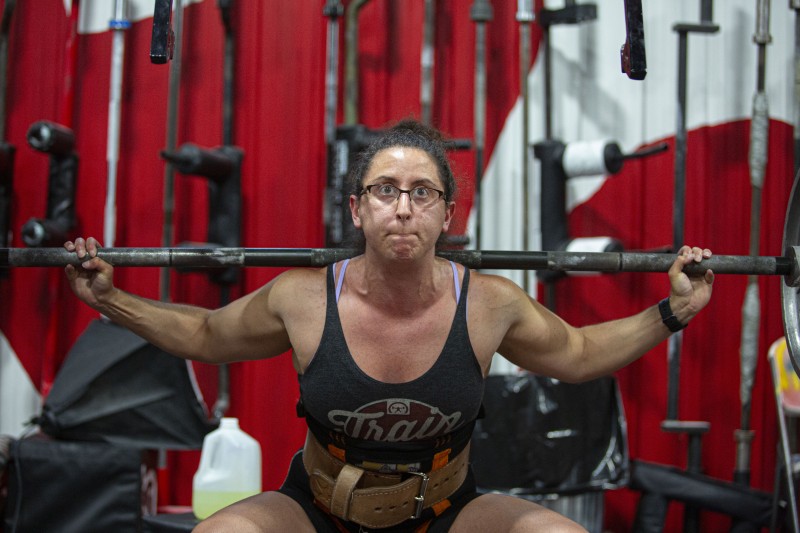
3. You realize your true competition is with the powerlifter you are training to become
Unless you are an Ed Coan, Dave Pasenella, Chuck V., Becca Swanson, or a lifter of that caliber, there’s always gonna be somebody strong(er). The goal is to be a strong(er) version of yourself each and every day. Along the course of your powerlifting, if you’re constantly becoming a better version and a stronger version of yourself, you will defeat competition over time just by being better than who you were the meet before.
You recognize this and that puts more wins under your belt, a bigger total in your personal record book, and maybe along the way, you will find out you are cut from the cloth of those mentioned before. You never know and continue on your own path comparing you with you while drawing inspiration from others along the way as well.
2. You paid attention in biology class
There are a balance and symmetry to the body, energy you can expend, and then there’s time for recovery. But there’s also feeding the machine that is the powerlifter. You paid attention in biology, genetics, and chemistry classes, and you realize that when the body is busy breaking down processed foods, preservatives, sugars, chemicals, and it is also running on a lack of sleep (CPAP), or trying to digest tons of chemicals, the body can’t focus on this job, which is to recover from training and become strong(er).
You are a serious powerlifter, and you know that the body can only deal with so much demand, and you are smart enough to know how to fuel your body, what nutrients play a role in growth and recovery, as well as what not to ingest. The see-food-eat-food diet of the 1990s has died a fat, water-logged, and bloated death.
1. You took the Red Pill
This life we live is comprised of sheep, and it is also comprised of shepherds. Followers or leaders. The flock goes where it is directed. It makes decisions, but they are within the structure allowed for them by the shepherds, who are the ones setting the course for the journey. The shepherds are the ones who create the plan, set the path, and consciously work through the inevitable objects and challenges that they will face. The sheep follow the other sheep.
READ MORE: Under the Baa-r: Lessons Learned in Herding, From Me to Ewe
To frame sheep and shepherds another way, consider what The Matrix’s Neo would say. And that is, “Take the red pill.”
“You take the blue pill — the story ends, you wake up in your bed and believe whatever you want to believe. You take the red pill — you stay in Wonderland, and I show you how deep the rabbit hole goes. Remember: all I'm offering is the truth. Nothing more.”
You just might be a serious powerlifter if you do just that and take life’s red pill. I say this because in powerlifting there are no secrets, there is no one path, there is no one method or ultimate program. There is not that perfect supplement or that one movement or exercise that will break things wide open for you.
There is not one road to follow, for it is the thousands of little and individual decisions that you make over the course of your powerlifting journey that land you on the road that is right for you. In order to create this road, this path to your own personal success in the sport, you need to be making the decisions; you need not be a part of the wanding flock of sheep, but the shepherd who leads the way because the shepherd knows where they want to go and must find their own path to reach that destination.
Blindly following Program X or Exercise Y because what the flock is doing might inadvertently lead someone to progress, but purposely choosing the methods, following the methods, learning what did and what didn’t work from these methods, and then making individual decisions on how to proceed —this is the way of the shepherd. This way is selectively learning from other powerlifters who achieved success, as well as learning from those who were or are not successful, and avoiding their pitfalls. It is reading and educating oneself, trying and failing and succeeding by one’s own hand while moving toward one’s own vision and mission for their powerlifting journey is paramount for the authentic life in this sport that is both intrinsically rewarding as it is body brutal.
Wishing you the best in your powerlifting training, competition, and journey.










